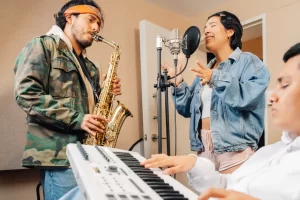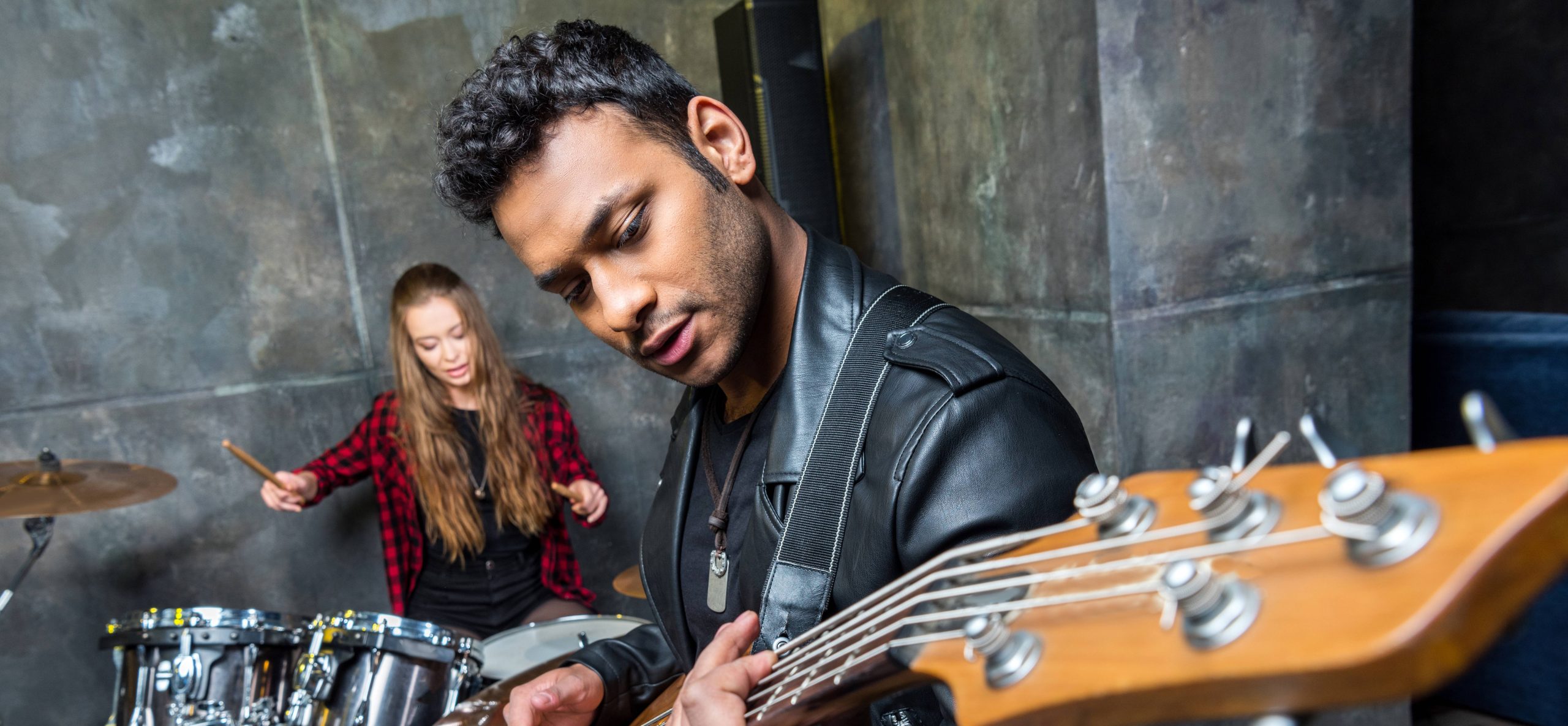Social media is an integral part of our daily lives. It has not only transformed the way we communicate and share information but also significantly influenced various industries, with music being one of the most impacted. This blog post will delve into the profound impact of social media on music discovery.
Traditionally, discovering new music was often a result of radio broadcasts, word-of-mouth recommendations, or stumbling upon a new CD at your local music store. However, with the advent of the internet and the rise of social media platforms, this process has fundamentally shifted. Today, platforms like Facebook, Instagram, TikTok, and Twitter have become vital tools for music discovery, acting as launchpads for emerging artists and a source of new music for listeners worldwide.
Social media has democratized the music industry, allowing independent artists to reach global audiences, often without the backing of a major record label. At the same time, it has influenced music trends, with viral challenges often catapulting songs to fame overnight.
The Shift to Digital Music Discovery
The shift to digital music discovery marked a significant change in the way listeners explore and consume music. Before the digital era, music enthusiasts relied on traditional methods like radio broadcasts, live performances, music stores, and recommendations from friends to find new music. The process was often slow and unpredictable, with access to international artists and genres limited by geographical boundaries and the interests of local radio stations.
However, with the advancement of technology and the rise of the internet, this scenario has dramatically changed. Music lovers now have the world’s music at their fingertips, with the ability to search, stream, and download songs from various genres and artists across the globe.
This transformation was further accelerated by the rise of social media platforms. Social media has become an essential tool for music discovery, acting as a global stage for artists to showcase their talent and reach out to potential fans. It has also provided listeners with a platform to share their musical preferences, recommend songs, and discover new music based on their interests and the preferences of their network.
Platforms like Facebook, Instagram, Twitter, and especially TikTok have played a crucial role in this shift. They’ve allowed users to integrate music into their posts, creating an immersive experience that combines visual content with music. For instance, TikTok’s short video format, coupled with its music integration feature, has created a powerful platform for music discovery, with numerous songs going viral through creative and entertaining user-generated content.
This shift to digital music discovery has not only revolutionized the way we find and listen to music but also opened up opportunities for independent artists and musicians, who can now reach a global audience without the backing of major record labels.
The Role of Social Media Platforms in Music Discovery
Social media platforms have emerged as powerful tools in music discovery, each offering unique features that have transformed the ways we stumble upon new tunes and artists.
Facebook, one of the earliest social media platforms to incorporate music, allows users to share their favorite tracks directly on their profile or in posts, leading friends and followers to new music discoveries. It also hosts fan pages and groups where like-minded music enthusiasts can share and discuss their favorite artists and songs.
Instagram’s story feature has been instrumental in promoting songs. Users can add music directly to their stories, providing a snapshot of their current favorite tracks to their followers. Furthermore, Instagram Live has become a popular platform for musicians to perform sets and interact with fans in real-time, offering a unique and intimate music discovery experience.
Twitter’s real-time nature makes it a hub for trending topics, including music. Artists often release new music updates on Twitter, and trending hashtags can lead users to explore new songs and artists.
However, TikTok has arguably had the most significant impact on music discovery in recent years. The app’s format encourages users to soundtrack their short videos with catchy tunes, often leading to viral trends that can catapult a track to global fame overnight.
Social media platforms, with their vast reach and interactive features, have become central to music discovery. They offer a space for artists to share their work and engage with fans, and for listeners to find their next favorite song or artist, making music discovery a more social and interactive experience.
The Impact of Social Media on Independent Artists
The advent of social media has undeniably reshaped the music industry, providing independent artists with a platform to reach audiences they would have otherwise struggled to connect with.
Before the digital era, exposure for independent artists was often limited and heavily dependent on the backing of a record label. However, social media has democratized access to listeners worldwide, allowing emerging artists to build their fan base and promote their music directly.
Platforms like Instagram and Facebook have provided spaces for artists to share behind-the-scenes content, engage with fans, and even release new music. These platforms have also made it possible for artists to collaborate with others, regardless of geographical boundaries, fostering creativity and innovation.
However, perhaps the most significant impact has been witnessed on TikTok, where independent artists have seen their tracks go viral overnight. The platform’s algorithm, which prioritizes content engagement over follower count, has made it possible for lesser-known artists to reach a global audience. Songs used in popular videos can quickly gain traction, leading to millions of streams on music platforms and significant increases in an artist’s fan base.
Moreover, social media has also given artists an avenue to showcase their personalities and stories, fostering a deeper connection with their audience. This personal branding aspect has become integral in the music industry, as fans often support artists they feel a personal connection with.
In essence, social media has leveled the playing field for independent artists, providing them with the tools and platforms necessary to reach and engage with fans on a global scale.
The Influence of Social Media Trends on Music Popularity
Social media trends have an undeniable influence on music popularity, often serving as a launching pad for songs to reach global audiences. This phenomenon has been particularly pronounced with the rise of platforms like TikTok, where viral trends can catapult a track from obscurity to the top of the charts virtually overnight.
TikTok’s short video format encourages users to create content set to catchy tunes. As these videos gain traction, so does the associated music, leading to what is often referred to as the ‘TikTok effect.’ Numerous songs, including Lil Nas X’s “Old Town Road” and Doja Cat’s “Say So,” have risen to prominence due to their popularity on the platform.
Instagram also plays a role in influencing music popularity. The platform’s story and reels features allow users to incorporate music into their posts, exposing their followers to new tracks. Similarly, artists and influencers often use these features to promote their favorite songs or upcoming releases, contributing to their overall popularity.
Twitter, with its real-time updates and trending hashtags, also influences music popularity. Artists often announce new releases on the platform, and fans use hashtags to discuss and promote their favorite tracks. Furthermore, viral challenges and discussions on Twitter can contribute to a song’s popularity.
In essence, social media trends have a substantial impact on music popularity. They amplify the reach of songs, help artists connect with wider audiences, and often play a pivotal role in determining which tracks become hits. These platforms have become integral to the music industry, shaping listening habits and influencing the global music landscape.
The Future of Music Discovery on Social Media
As we look towards the future, social media’s role in music discovery is set to continue evolving, driven by technological advancements and changing user habits.
Increasingly, social media platforms are integrating more sophisticated music features. Instagram, for instance, has expanded its music capabilities with features like lyrics in stories and music in reels. Future advancements could involve more immersive music experiences, such as virtual reality concerts or AI-curated playlists based on user behavior.
Artificial Intelligence (AI) and Machine Learning (ML) technologies will also play a significant role. These technologies can analyze user data to provide personalized music recommendations, enhancing the discovery process. As these technologies become more advanced, users can expect increasingly tailored music experiences on social media.
Livestreaming is another area set to influence music discovery. As seen during the Covid-19 pandemic, artists turned to platforms like Instagram Live and Twitch to connect with fans and perform live sets. This trend is likely to continue, offering a unique platform for music discovery.
Furthermore, as social media platforms continue to grow and new ones emerge, they will provide fresh avenues for music discovery.
The future of music discovery on social media looks promising, with technological advancements set to deliver more personalized and immersive music experiences. As these platforms continue to evolve and innovate, they will remain at the forefront of how we discover and engage with music.
To Sum it Up
The digital revolution, spearheaded by social media, has profoundly transformed the music industry. It has democratized music discovery, promotion, and distribution, particularly benefiting independent artists who previously had limited avenues for reaching audiences. Platforms like Instagram, Facebook, and TikTok have become instrumental in connecting artists with fans, promoting new music, and even sparking viral trends that can catapult a song to global fame.
The influence of social media trends on music popularity cannot be overstated. The ‘TikTok effect’ has demonstrated the power of social media to make a song a hit overnight, while features on Instagram and Twitter play a significant role in shaping listening habits and determining chart-toppers.
Looking ahead, the future of music discovery on social media is exciting. Technological advancements promise increasingly personalized and immersive music experiences. From AI-curated playlists to virtual reality concerts, the possibilities are vast and thrilling.
In essence, social media has become inextricably linked with the music industry. It has reshaped how artists share their craft, how fans discover new music, and how songs rise to popularity. As these platforms continue to innovate and evolve, they will undoubtedly remain at the forefront of the music landscape, offering fresh opportunities for artists and providing listeners with an ever-expanding universe of music to explore.




